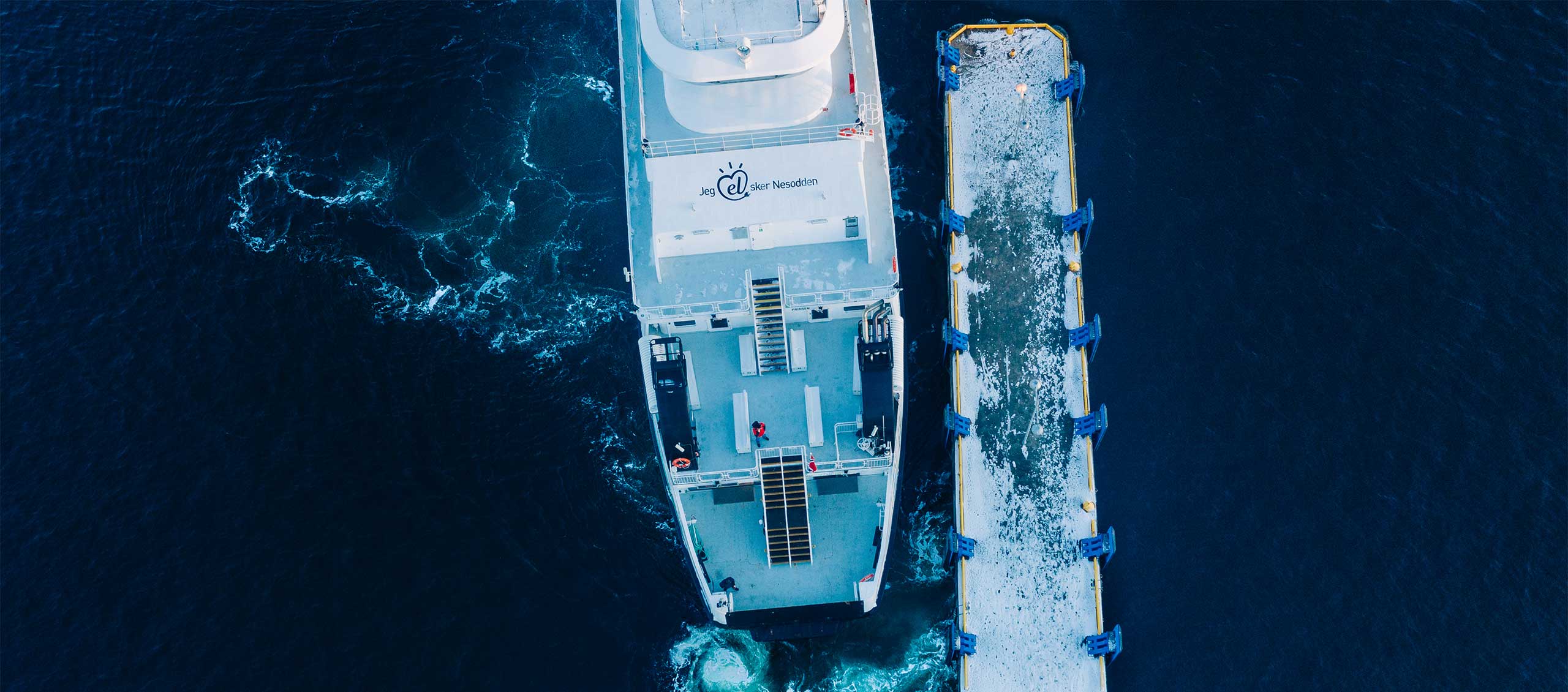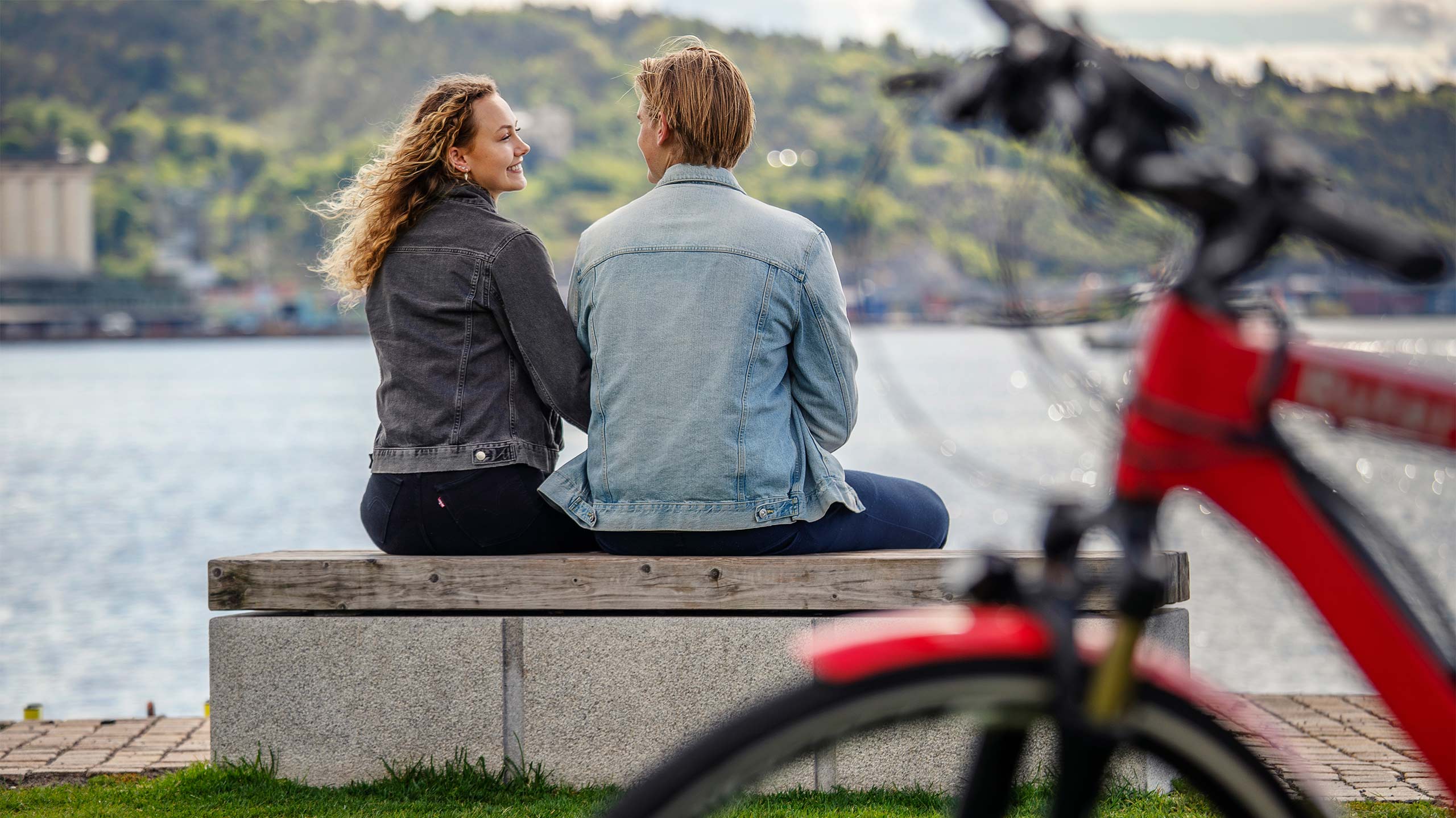
Sustainable Development Goals
Ruter's Sustainability Strategy from 2019 is based on eight of the UN's Sustainable Development Goals. It defines the direction and framework for our sustainability ambitions.
Eight sustainability goals
The figure shows the connection between the eight sustainability goals chose by Ruter as particularly important to us. The main focus is on Goal 11 Sustainable cities and communities, which is linked to our core activities. We want to create results within four selected effect goals (Good health, Decent work and economic growth, Stopping climate change, and Less inequality), where we have a particularly large impact. To succeed, we have also chosen three sustainability goals that serve as our most important tools: Innovation and infrastructure, responsible consumption and production and Cooperation to achieve the goals.

Climate and environment
Ruter has had a special focus on environmental dimensions until now. Ruter’s main contribution to reducing CO2 from road traffic is to contribute to an increased share of green travel. That is, public transport in addition to cycling and walking, and gradually also new mobility services and car sharing. Ruter has also been working to remove emissions from its own means of transport and contribute to better local air quality by electrifying all transport by 2028. In 2020, where the recommendation has been not to travel if you do not have to and fewer have travelled by public transport, it is gratifying to note that more people have cycled and walked. Although it does not cover fewer public transport journeys, these changed habits make a valuable contribution to Goal 3 Good health and to Goal 13 Stopping climate change.
In 2020 we focused on the social dimension, and how Ruter can help lessen inequality.
1 Less Inequality
In 2020, Ruter incorporated social inclusion as a fundamental company goal. The Sustainable Mobility for Everyone Project started in the autumn of 2020 in collaboration with the Norwegian Handicap Association. The long-term ambition is to offer an experience of sustainable mobility to everyone regardless of age, gender, functional ability, race, ethnicity, national origin, religion and economic status. In the short term, it is about gaining insight into the various challenges that disabled people encounter with Ruter’s services and changing attitudes and processes at Ruter to create better services for disabled people, and thus everyone else. Gaining insight into the project will influence newly developed key indicator in Ruter’s goal hierarchy: Increased mobility for people with disabilities.
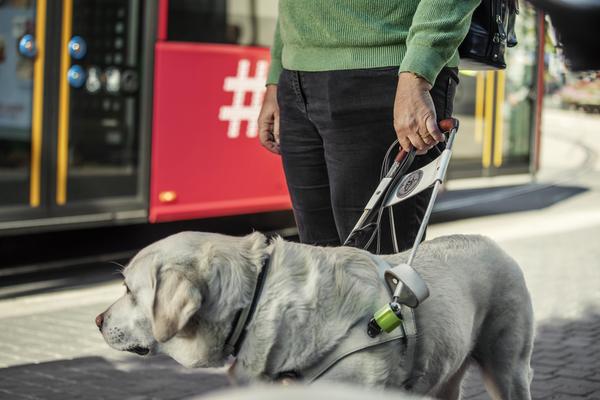
2 Emission-free by 2028
Ruter is working hard to achieve the goal of having 100% emission-free public transport in all our operations by 2028. Electric buses are energy efficient, quiet and free of NOx and PM exhaust particle emissions which affect local air quality. Emission-free 2028 is a key indicator for achieving the Sustainable cities and communities goal in Ruter’s goal hierarchy. It is a direct response to Sustainable Development Goal 3 Good health and Goal 13 Stopping climate change.
As an important step on the road to emission-free public transport, Ruter has facilitated the use of renewable energy in line with our Fossil Free 2020 goal. Liquid biofuels for new contacts must meet the standards specified in the Norwegian Product Regulation. Operators must document greenhouse gas reductions, and the fuel must not be made from palm oil, or residues and/or by-products from the production of palm oil.
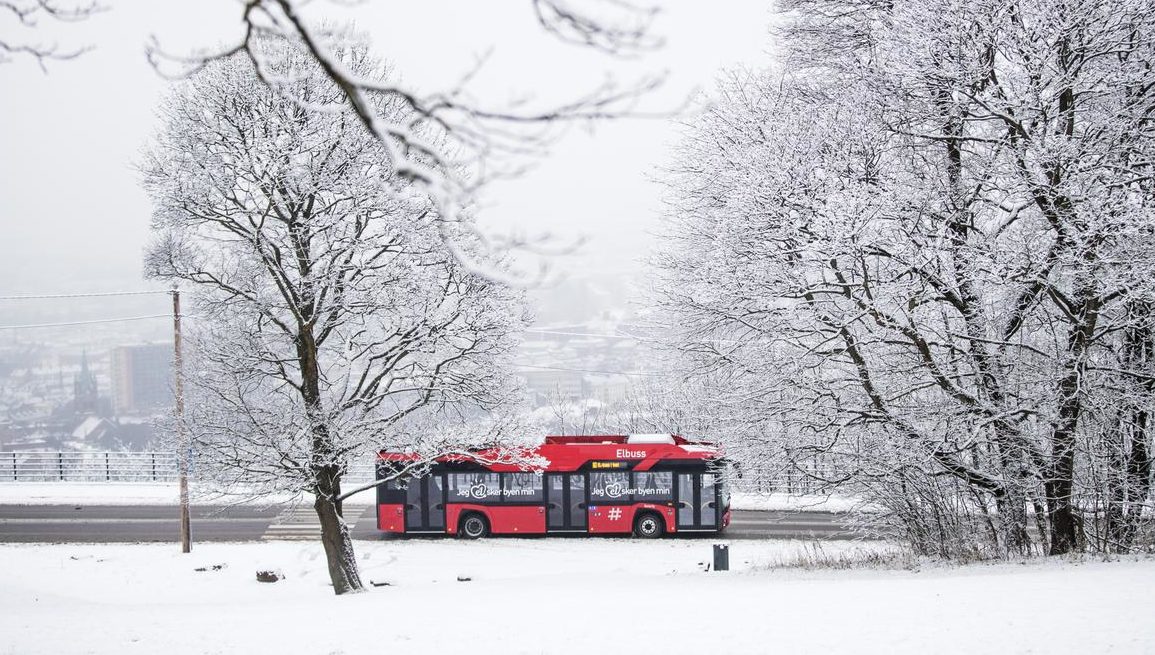
3 Traffic safety
Road safety is a third key indicator for achieving the goal of sustainable cities and communities. In this context, traffic safety is assessed against environmental issues. Combining environment and driver safety is a dilemma in certain bus configurations in Ruter’s tender competitions. Through cooperation and dialogue, the market has managed to deliver buses that meet both criteria of electric drive lines and driver safety.
In the tender for bus services for Oslo South, Ruter could thus set requirements for emission-free buses to be built in accordance with the requirements stated in UNECE-R29 (frontal impact protection), UNECE-R93 (front underrun protection) and UNECE-R66 (superstructure strength protection).
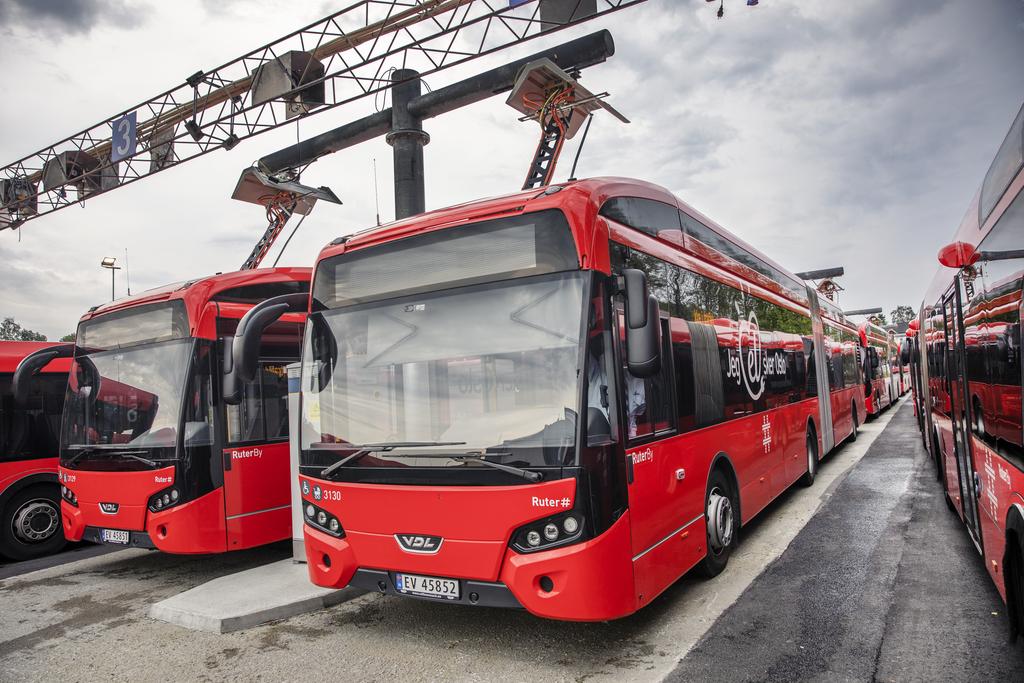
4 Circularity
Ruter’s total climate and environmental footprint is greater than emissions from transport system operations. It is therefore important for Ruter to contribute to making this footprint even smaller by setting appropriate requirements in procurement and identifying targeted measures. Circularity has therefore been introduced as one of the key indicators for achieving the goal of Sustainable cities and communities. It is important that the entire value chain is sustainable in order to strengthen our contribution to sustainability Goal 8 Decent work and economic growth and Goal 12 Responsible consumption and production.
Ruter’s rules of conduct for suppliers describe our requirements and expectations for working conditions and human rights in the supply chain. Ruter requires that all products and services included in deliveries to Ruter must be manufactured under conditions that are compatible with central UN conventions, ILO conventions and national labour legislation at the place of production. In October 2020, Ruter became a member of Ethical Trade Norway, which is a resource center for sustainable trade. The membership will help Ruter in the work of following up Ruter’s requirements for decent working conditions in contracts.
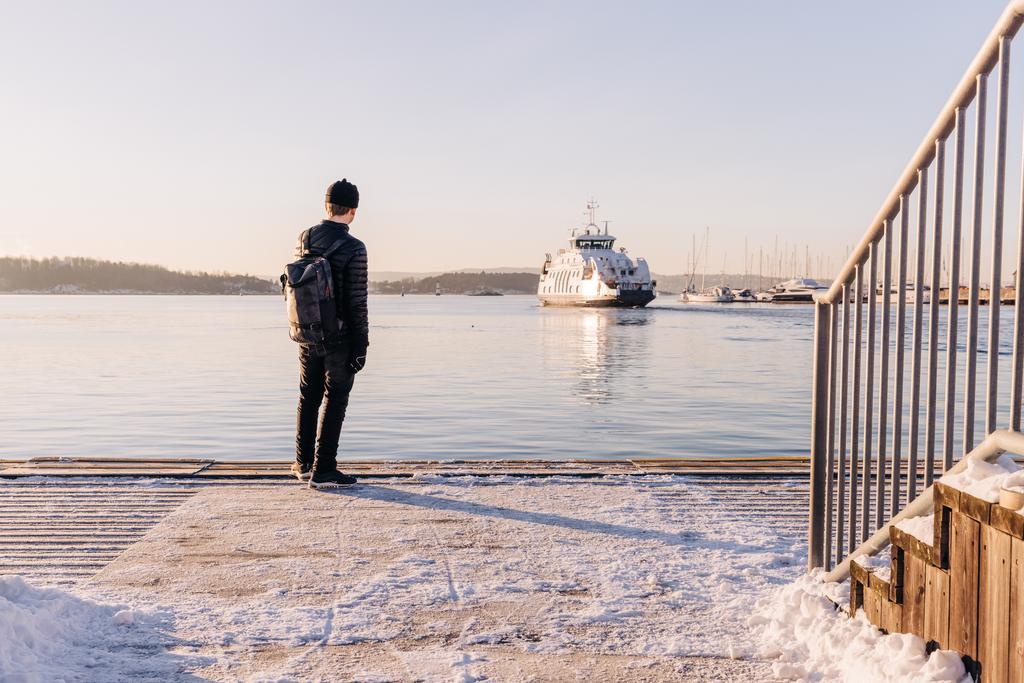
Specific goals and reporting
Ruter’s environmental management system is based on the ISO 14001:2015 Standard in addition to the goal hierarchy as a sustainability tool. Ruter is considering using the Global Reporting Initiative (GRI) as a standard for sustainability reporting. GRI is the most widely used standard for non-financial reporting worldwide. It will probably be better suited for understanding and communicating the influence our company has on e.g. climate change, resource efficiency and human rights.
Change is created by action, not words.
The sustainability goals give Ruter an inspiration for change and will help us to be responsible and to function as an effective tool for our owners. Change is created by action, and in September 2020 Ruter signed the Greenwashing Poster to clarify that real results are what count in the Green Shift.
